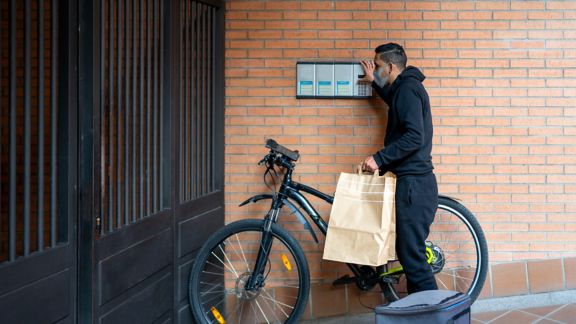Older Adult Access to Rideshare Services

Problem
Older adults need access to safe, affordable, and reliable transportation.
Rideshare services can promote the independence of older adults. There is a lack of research on the types of rideshare services available to older adults in the U.S., the characteristics of those services, and the factors that may affect older adults' use of rideshare services.
Solution
NORC studied rideshare services for older adults in the U.S. and factors affecting their use.
On behalf of the Centers for Disease Control and Prevention National Center for Injury Prevention and Control, NORC identified and characterized rideshare services available to older adults. We conducted an environmental scan, in partnership with the Independent Transportation Network of America (ITNAmerica), the first national, nonprofit transportation network for older people. The scan included:
- An analysis of Rides in Sight, the largest national database on transportation services in the U.S., to identify available rideshare services
- The creation of a demographic profile of older adults who used one nonprofit rideshare service
We also conducted a literature review and key informant interviews with ride-share and referral services and transportation experts and telephone interviews and in-person focus groups with older and younger adults to compare the barriers and facilitators of rideshare use.
Result
Rideshare services offer older adults a promising alternative to driving.
Rideshare services may help address the negative health consequences associated with driving cessation. There are nearly 1,000 rideshare services available to older adults in the U.S., including 917 nonprofit rideshare services and 11 for-profit rideshare services. The use of rideshare services by older adults is affected by individual needs and preferences, social conditions, and business and policy factors. The most important facilitator of older adult use of ride share services was the desire to remain independent. The barriers and facilitators affecting the use of rideshare services differed for older and younger adults. The most important facilitator of younger adult use of rideshare services was information technology, whereas among older adults, information technology was a barrier. Rideshare services that use fully autonomous vehicles in the future may need to tailor transportation offerings for older adults to increase their willingness to use these services, address concerns about safety and reliability, and support their mobility and social needs.
Related Tags
Project Leads
-
Alycia Bayne
Associate DirectorProject Director -
Alexa Siegfried
Senior Research Scientist
Data & Findings
-
opens in new tab"Older Adult Willingness to Use Fully Autonomous Vehicle (FAV) Ride Sharing."
Journal Article | August 17, 2021
-
opens in new tab"Barriers and Facilitators of Older Adults’ Use of Ride Share Services."
Journal Article | April 19, 2021
-
opens in new tab"Characteristics of Ride Share Services for Older Adults in the United States."
Journal Article | January 30, 2020
-
opens in new tab"Environmental Scan of Ride Share Services Available for Older Adults."
Project Report | December 17, 2019









